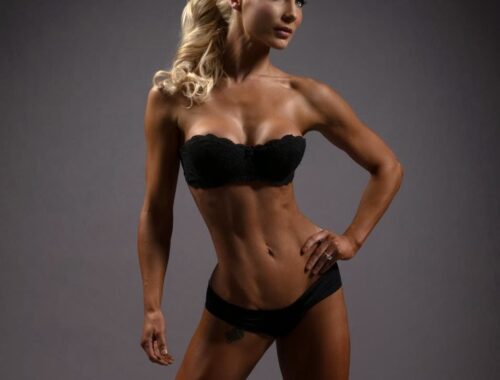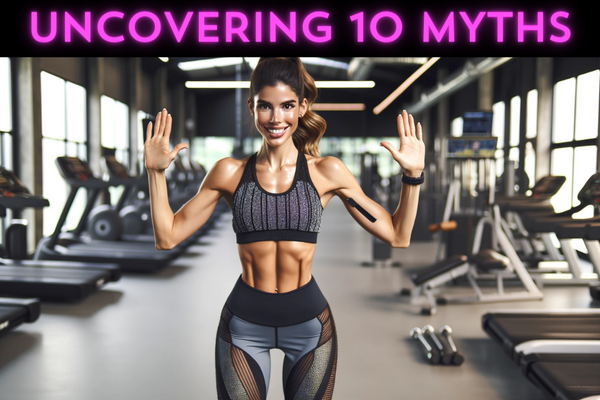
BIKINI FITNESS: DEBUNKING MYTHS AND EMBRACING TRUTHS
Bikini Fitness, a fascinating and often misunderstood field within bodybuilding, is surrounded by numerous myths and misconceptions. This article aims to clarify and deepen these topics, providing a more detailed and comprehensive insight into the sport. We will address ten common myths and contrast them with the truths of the sport, based on research and athletes’ experiences.
Contents
Myth 1: Muscle Mass Is Not Necessary in Bikini Fitness
The Importance of Muscle Mass
Contrary to popular belief, muscle mass plays a crucial role in Bikini Fitness. While competitors in this category do not exhibit the same muscular mass as other bodybuilding categories, the development of well-defined and aesthetically pleasing muscles is essential. Training for Bikini Fitness focuses on sculpting a body with toned, symmetrical, and aesthetic muscles, challenging the notion that success in this category can be achieved without significant muscle development. The training regimens are meticulously designed to focus more on aesthetics than on sheer size gain, requiring a very specific strategy of training and nutrition.
Myth 2: Bikini Diet Means Not Eating
Realities of Nutrition in Bikini Fitness
The myth of extremely restrictive diets in Bikini Fitness is widely debunked by the actual nutritional practices of the athletes. A balanced diet is essential for building and maintaining the necessary muscle mass, as well as ensuring overall health and energy. Diets for competitors in this category often include a wide range of foods, focusing on the balance of macronutrients and micronutrients. The goal is to maintain a healthy metabolism and provide enough energy for intense workouts while achieving optimal muscle definition.
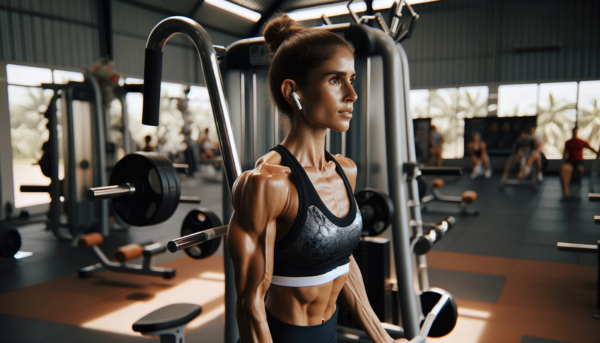
Myth 3: Anyone Can Compete in Any Category
Strategic Category Selection
Choosing the right category to compete in goes beyond personal preference. It involves a careful evaluation of natural body structure, current muscle mass level, and long-term personal goals. This decision can be crucial for competition success, as aligning natural strengths with the criteria of the chosen category can maximize the chances of standing out.
Myth 4: Competing Is Just a Physical Challenge
The Holistic Commitment in Bodybuilding
Competition in Bikini Fitness Bodybuilding is a holistic commitment that challenges both mentally and physically. It requires a holistic approach that includes not just physical preparation but also mindset, stress management, and the ability to maintain balance in personal and social life. Athletes need to be able to integrate their training and nutrition regimen into their everyday life, which can be a demanding task both mentally and emotionally.
Myth 5: You Must Eat Five or Six Times a Day
Flexibility in Meal Frequency
In bodybuilding, particularly in Bikini Fitness, nutrition does not follow a one-size-fits-all rule. The frequency of meals can vary based on individual needs, lifestyle, and metabolism. Some may thrive on the traditional method of eating several times a day, while others may find success with fewer but more substantial meals.
Myth 6: Competing Affects Menstrual Health and Depends on Genetics
Female Health and the Role of Genetics
Intense competition in Bikini Fitness can affect menstrual cycles, but this is not a universal rule. Also, while genetics play a role in bodybuilding, it does not determine success. The key lies in how the body is trained and manipulated, combined with nutrition and healthy lifestyle habits, which truly make a difference in performance and outcomes.
Myth 7: Mandatory Use of Pharmacology
Substance Use in the Sport
The use of performance-enhancing substances is not a requirement in Bikini Fitness. In fact, many competitors choose to follow a completely natural path, proving that impressive results can be achieved without pharmacology. There are specific federations focused on natural competitions, promoting a healthy and fair competition environment.
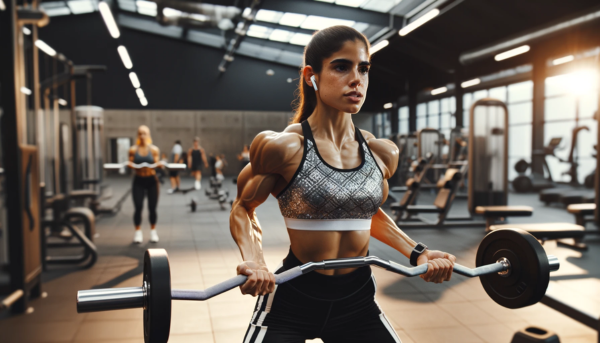
Myth 8: Bodybuilding Is Only for the Young
Diversity of Ages in the Sport
Bikini Fitness Bodybuilding is inclusive in terms of age. Athletes of all ages compete and achieve success, showing that dedication and passion are more determining factors than age. The sport offers opportunities for individuals from different life stages to pursue their competition dreams and achieve their physical goals.
Myth 9: You Need Expensive Equipment to Train
Accessibility of Training
Training for Bikini Fitness does not necessarily require expensive equipment or high-end gym facilities. Many athletes have achieved excellent results with home workout routines or in more accessible local gyms. The key lies in consistency, proper technique, and a well-structured training program.
Myth 10: Success Depends Only on Physical Training
The Importance of Mental Health
Mental health and emotional well-being play an equally important role in success in Bikini Fitness. Effective stress management, sustained motivation, and a positive mindset are essential for maintaining focus and commitment to training and competition preparation. A balanced and healthy perspective helps athletes overcome challenges and reach their goals in this demanding sport.
Demystifying these aspects of Bikini Fitness Bodybuilding allows us to better understand the complexity and beauty of this sport. It highlights the importance of a balanced approach that includes physical training, proper nutrition, mental health, and strategic planning. With accurate information and a dedicated attitude, bodybuilding reveals itself as an accessible and enriching discipline for a wide range of individuals.
También te puede interesar
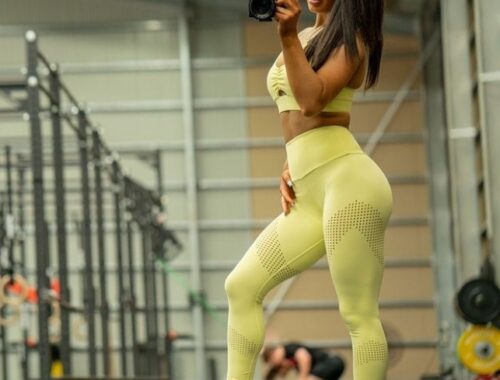
HOW TO TAKE PROTEIN?
enero 30, 2021
THE WHOLE TRUTH ABOUT: FAT AND WEIGHT LOSS
enero 13, 2021